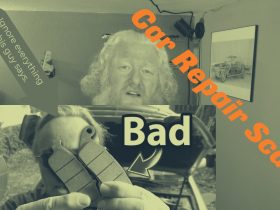Being involved in an accident can be devastating both mentally and physically. According to statistics, there is an increased rate of accidents either caused by bad roads, poor driving methods, or lack of motor vehicle maintenance. Everyone gets urged to maintain safe driving habits and keep the vehicles in better conditions. Regular maintenance of your car prevents costly repairs and accidents caused by malfunctioning parts, including tires, brakes, and electrical connections. Here are some car upkeep tips that can save your life on the road.
1. Checking the Electrical System
The electrical system, powered by the engine or the battery system, runs most vehicle parts. A faulty electrical system can make you stall on the road or cause a severe accident when the powered equipment fails to work or malfunction. Other than the systems failing to function, your battery may drain completely, making your vehicle fail to start or move on the road. It’s recommended to look at your battery or have a mechanic check on the battery and all electrical systems regularly to avoid malfunctioning systems or systems failing to work completely. Parts to be inspected include the terminals, cable cracks, cable breaks, loose connections, and battery health. Replace any battery that has overstayed and has become weak.
2. Brakes
Brakes are considered essential parts of any vehicle. When the brakes malfunction in a car, such may cause an accident, leading to loss of lives. Maintaining your brakes helps them stay operational, thus keeping you and other road users safe from collisions and related accidents.
Always service the brakes and ensure that they are kept in good working condition every time. However, suppose there is an accident caused by brakes’ failure due to the manufacturers’ fault. In that case, you can file to be compensated for injuries resulting from a car accident since it wasn’t your fault, and the situation is beyond your control. At all times, ensure the brakes get checked and replaced if worn out. Any screeching or vibration of the vehicle when brakes are applied must be checked out and solved immediately.
3. Lights
Your vehicle lights need to be functioning all the time, regardless of whether you travel at night or not. Vehicle lights, especially the hazard lights, might prevent accidents during the night and in the daytime, especially when your vehicle stalls in the middle of the road. Ensure all the vehicle lights are maintained at working conditions and that they are working correctly. Please make sure you test the lights before leaving your home. How do you do this? You can turn on the hazard lights and check if they flicker, then have someone check the headlights, taillights, and brake lights to ensure they are working well. Malfunctioning lights can easily cause an accident, especially at night.
4. Wipers
Wipers are the most neglected car parts to most people, especially on sunny days. One wakes up and drives off the car without checking if the wipers are functioning. When your wipers are not working properly and encounter rain along the way, or someone splashes water on the windscreen, it may lead to a fatal accident since you will get obstructed. The wiper blades are not only for the rain, but they help remove dust in the windscreen on dusty roads. You should check wipers for cracks and if worn out. Also, the frames must be checked for bends to avoid them scratching the windscreen. Ensure the wipers can remove water drops and debris from the windscreen with ease.
5. Tires
Tires are also essential components in any vehicle, and you should check them before and after trips. Things to be checked on tires include their alignment, the tire pressure, and their treads. Replace any worn-out tire with immediate effect as it can cause accidents either by sliding or bursting. Before any trip, ensure that every tire is appropriately inflated, following its recommended pressure. Any tire with invisible threads must immediately get replaced since it can’t grip on road surfaces as required. Other than the inflation and treads, ensure that the vehicle carries the recommended cargo or passengers. Overloading a vehicle can cause wear of the tire on one side or the bursting of the tire.
Most vehicles come with insurance and maintenance coverage for maintenance procedures. A qualified mechanic or any other car appointed agent should be the one to do servicing or replacement of parts. In case of an accident, kindly follow all the safety measures to save lives and contact your lawyer when necessary in filing claims. We do hope the tips will be essential to every car owner and will help avoid accidents.







